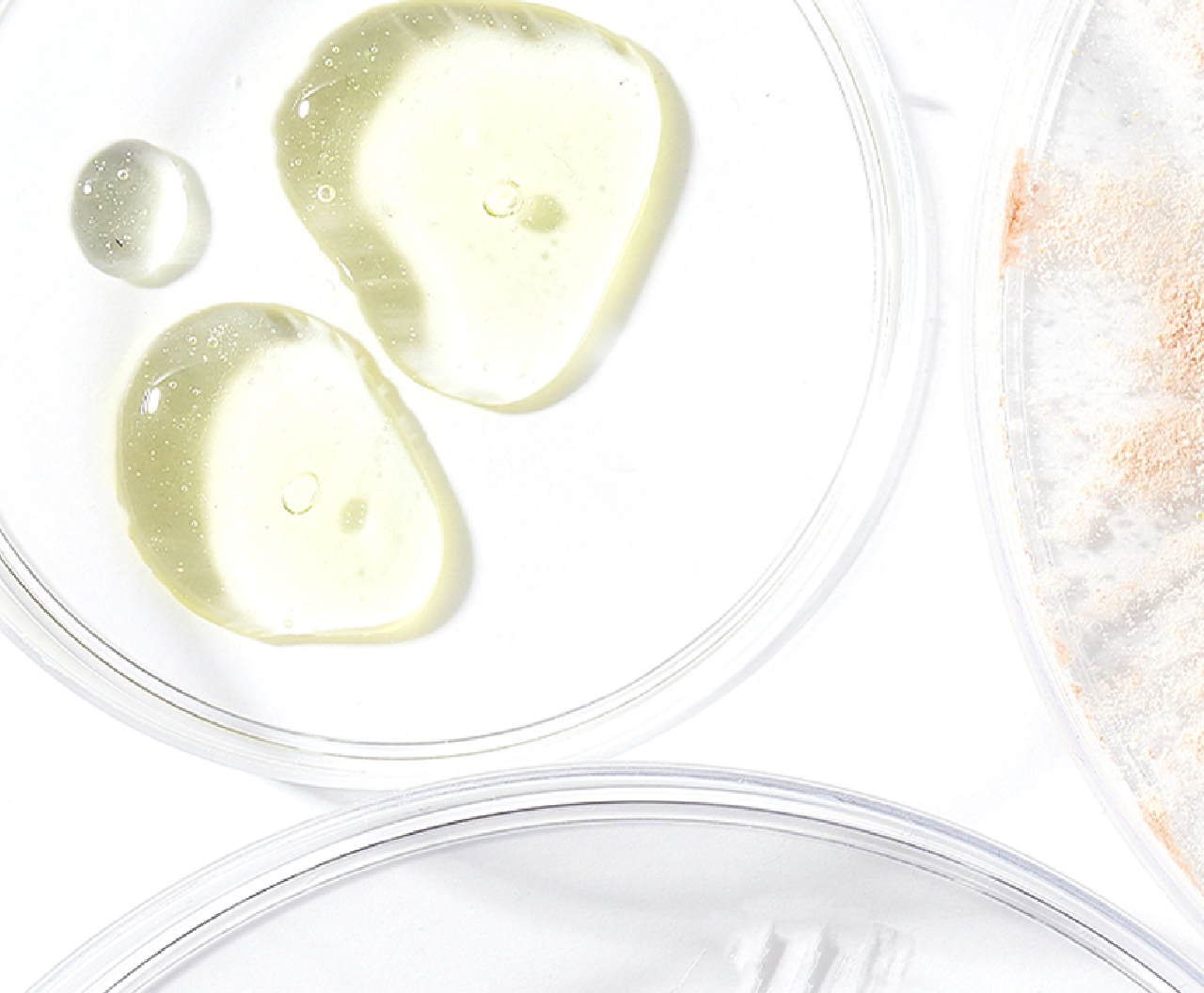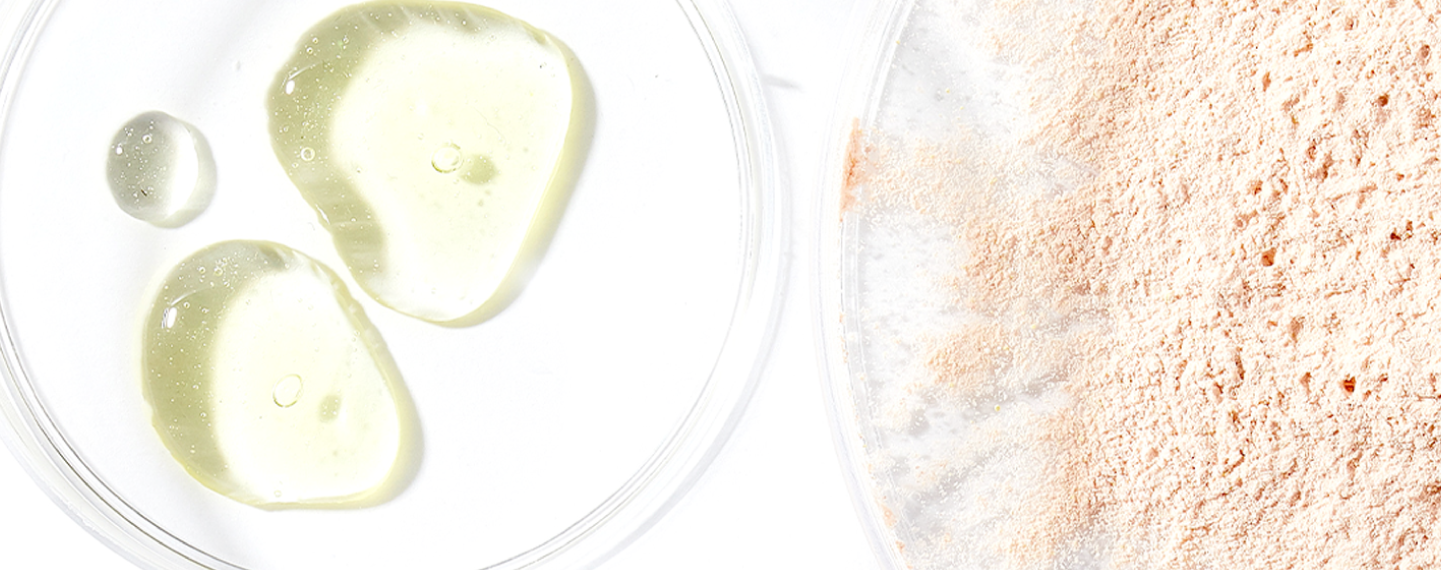Education
Essential oils for acne: do they actually work?


SHARE
Education
Essential oils for acne: do they actually work?
Medically reviewed by Kristin Hall, FNP
Written by Apostrophe Team
Last updated 4/1/2024
If you’ve searched online for natural treatments for acne, you’ve probably stumbled onto blog posts and articles promoting essential oils.
Essential oils are highly concentrated compounds extracted from plants. They’re often used in aromatherapy to assist with relaxation. Essential oils are also promoted as natural treatments for a huge range of different conditions, from hormonal acne to serious diseases.
Some essential oils are also linked to health benefits, mostly related to stress, sleep, anxiety, and depression. There’s also limited scientific research showing that some essential oils can have anti-inflammatory effects.
While some people report improvements in their acne after using essential oils, there’s no real scientific evidence showing that essential oils work for acne.
Below, we’ve dug into the data on essential oils as an acne treatment. We’ve also covered the most popular essential oils promoted online as acne treatments, the evidence in their favor, and other, science-backed treatments that can offer more reliable results.
How Essential Oils Work
Essential oils are made using a combination of plant extracts and carrier oils. To make essential oils, aromatic chemicals are extracted from plants using methods like cold pressing or distillation using steam or water.
These chemicals are then mixed with a carrier oil, creating an aromatic oil that has the scent of the plant from which its ingredients were extracted.
Essential oils have been used medicinally for millennia in a variety of cultures. Religious texts such as the Bible contain hundreds of references to essential oils, including many oils that are still in use today.
There are almost 100 different essential oils in use today, ranging from popular oils made using extracts of peppermint, sandalwood, and lavender, to less common essential oils made from fruit extracts, wood extracts, and even psychoactive plants such as cannabis.
Essential oils are designed to be inhaled or diluted and applied to your skin. Studies show that some amount of the plant content of essential oils is absorbed through your skin when applied topically, meaning that some essential oils have effects when used topically.
While the research on essential oils isn’t conclusive, some studies do show that essential oils may be able to improve certain aspects of your health. For example:
A 2012 study of essential oils and aromatherapy found that sweet orange essential oil may have benefits as a treatment for anxiety and stress, and may promote relaxation.
A 2016 study found that topical application of peppermint oil can help to relieve pain from headaches.
Several studies of tea tree oil have found that it has some, albeit limited, antibiotic and anti-inflammatory properties.
It’s important to keep these studies in perspective. While some studies show that essential oils may have health benefits, there are few studies showing a clear link between essential oils and any real, measurable, large-scale improvements in people’s health.
Unfortunately, many of these studies have been misused by people and companies involved in selling essential oils, often to suggest that certain essential oils have clear, absolute benefits for your health and well-being.
Essential Oils and Acne
So, do essential oils work as an acne treatment? That’s a difficult question to answer. Right now, the scientific evidence for essential oils as an acne treatment is limited at best, with a handful of studies showing some links between the use of essential oils and changes in acne.
Of these studies, one of the most interesting is a 2007 study of tea tree oil.
In the study, a total of 60 patients with moderate acne vulgaris were divided into two groups, with 30 receiving tea tree oil gel and the other 30 receiving a non-therapeutic placebo.
After 45 days of treatment, the patients in the tea tree oil group showed an improvement in the acne severity index (ASI) which was more than five times greater than the patients who received the non-therapeutic placebo.
The study concluded that tea tree oil is an effective treatment for mild to moderate acne, noting that both groups had relatively similar, tolerable side effects.
While this study might seem conclusive, it has several weaknesses.
First of all, the sample size was small, with only 30 people using each treatment. It was also an extremely short-term study, with the patients only monitored for a total of 45 days from start to finish.
Other studies of essential oils and acne tend to produce inconclusive results, with none showing a clear link between essential oils and any improvement in acne.
A 2003 study of the antibacterial benefits of juniper oil, an essential oil that’s often promoted as a natural acne treatment, showed that it has some antibacterial benefits, although these weren’t compared against any science-backed antibiotics.
A 2010 study of several essential oils found that some oils have mild anti-inflammatory effects, although this study only looked at the effects of oils in a test-tube environment. As such, it isn’t completely relevant as evidence that essential oils can prevent acne-induced inflammation.
In general, there just isn’t very much real, science-backed evidence showing that essential oils have any benefits as acne treatments. There’s also no evidence showing that essential oils are more effective at preventing acne than existing treatments such as tretinoin and clindamycin.
So, Can Essential Oils Get Rid of Acne?
Right now, there just isn’t enough evidence to recommend any single essential oil as a treatment for acne, whether it’s hormonal acne or more severe cystic acne.
In the future, studies may reveal that essential oils have benefits as acne treatments. Until this data becomes available, it’s best to take any claims about essential oils and their acne-fighting benefits with a grain of salt.
Fortunately, there are proven, science-backed treatments for acne available. These treatments range from retinoids such as tretinoin, to topical antibiotics, birth control pills, and antiandrogens such as spironolactone:
Tretinoin is a topical retinoid that speeds up your body’s production of skin cells. This reduces the amount of dead skin on your face, stopping pores from becoming blocked and reducing your risk of experiencing acne breakouts. Our guide to tretinoin and hormonal acne explains how you can use tretinoin to get rid of acne, with links to real studies of tretinoin as an acne treatment.

PRESCRIPTION TRETINOIN
Target acne, dark spots, and signs of aging with this science-backed ingredient.
Clindamycin is a topical antibiotic that gets rid of the bacteria responsible for causing acne lesions to become inflamed and infected. Used daily, it can help you avoid major breakouts of inflamed, cystic acne. Our guide to clindamycin and acne explains how you can use clindamycin to get rid of acne, with links to read studies documenting clindamycin’s benefits for your skin.
Combined birth control pills like Yaz®, Estrostep® and Ortho Tri-Cyclen® can reduce acne by lowering your body’s production of testosterone, helping you avoid the oily skin that’s a major cause of acne breakouts.
Spironolactone is an antiandrogen that reduces your body’s production of testosterone, giving you less oily skin and fewer acne breakouts. It works similarly to birth control pills but does not provide any contraceptive effects. Our guide to spironolactone explains how spironolactone works, with links to real studies documenting its benefits as an acne treatment.
If you have mild to moderate acne, you might also be able to keep acne breakouts under control by changing certain parts of your lifestyle. Our guide to hormonal acne lists several tactics that you can use to treat acne naturally, from avoiding certain products to washing your face often.
All in all, acne isn’t something you need to live with forever. While there just isn’t enough study data on essential oils to recommend them as an effective treatment, numerous other products can help you treat acne, stop breakouts, and enjoy clearer, healthier skin.
Like what you just read? Sign up for our email list to get the scoop on skincare science delivered straight to your inbox.

Deep Dives
A dermatologist shares his thoughts on the recent studies about benzoyl peroxide and benzene.
Read More
Education
What is milia?
What is milia? Today, we’re jumping into one type of bump that you may have heard about most commonly in infants — milia.
Read More
Education
Best moisturizer for acne-prone skin
If you have combination acne-prone skin, figuring out which moisturizer is best for your skin might be tough. In this guide, we break down the best moisturizer for combination, acne-prone skin.
Read More